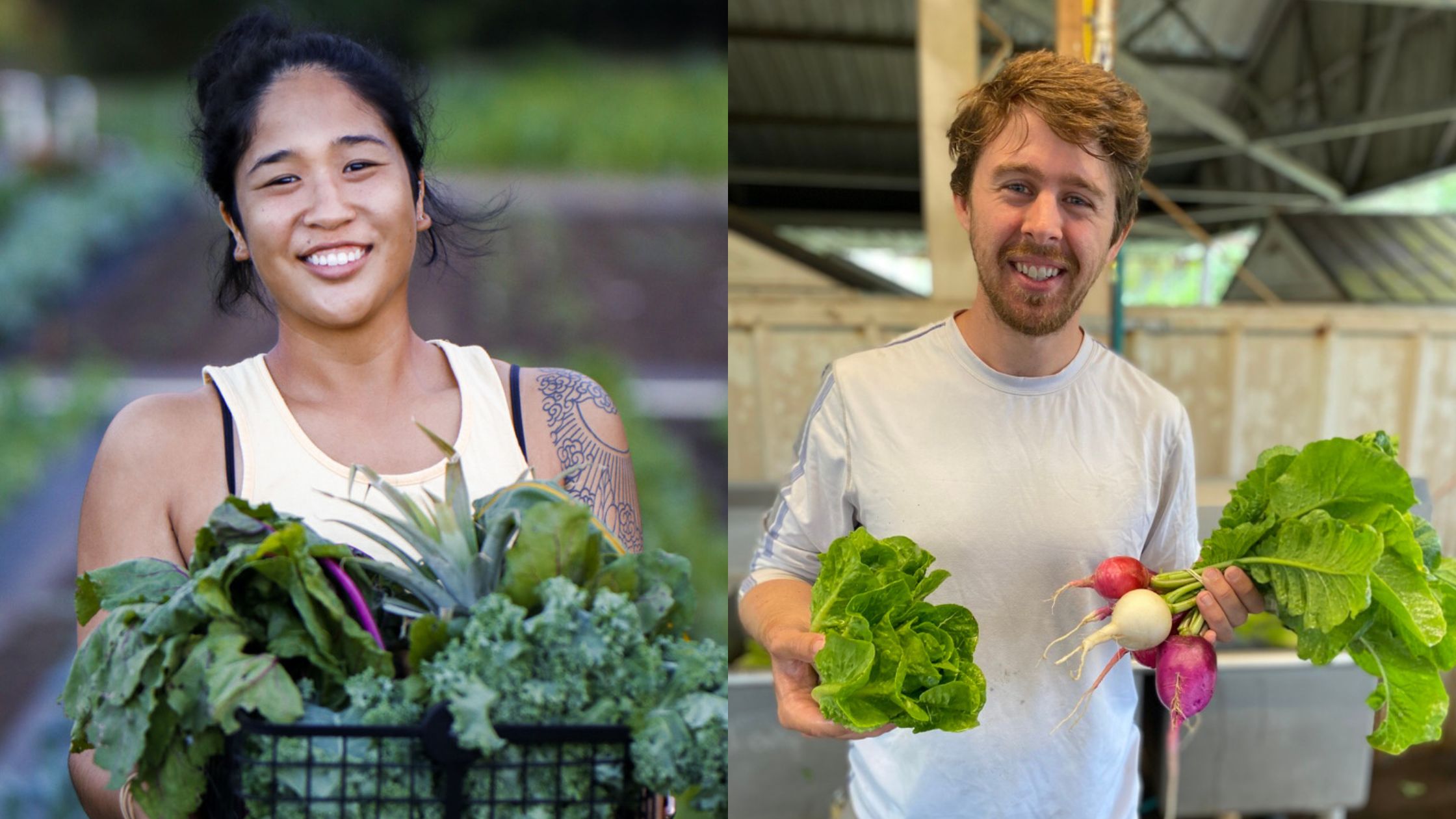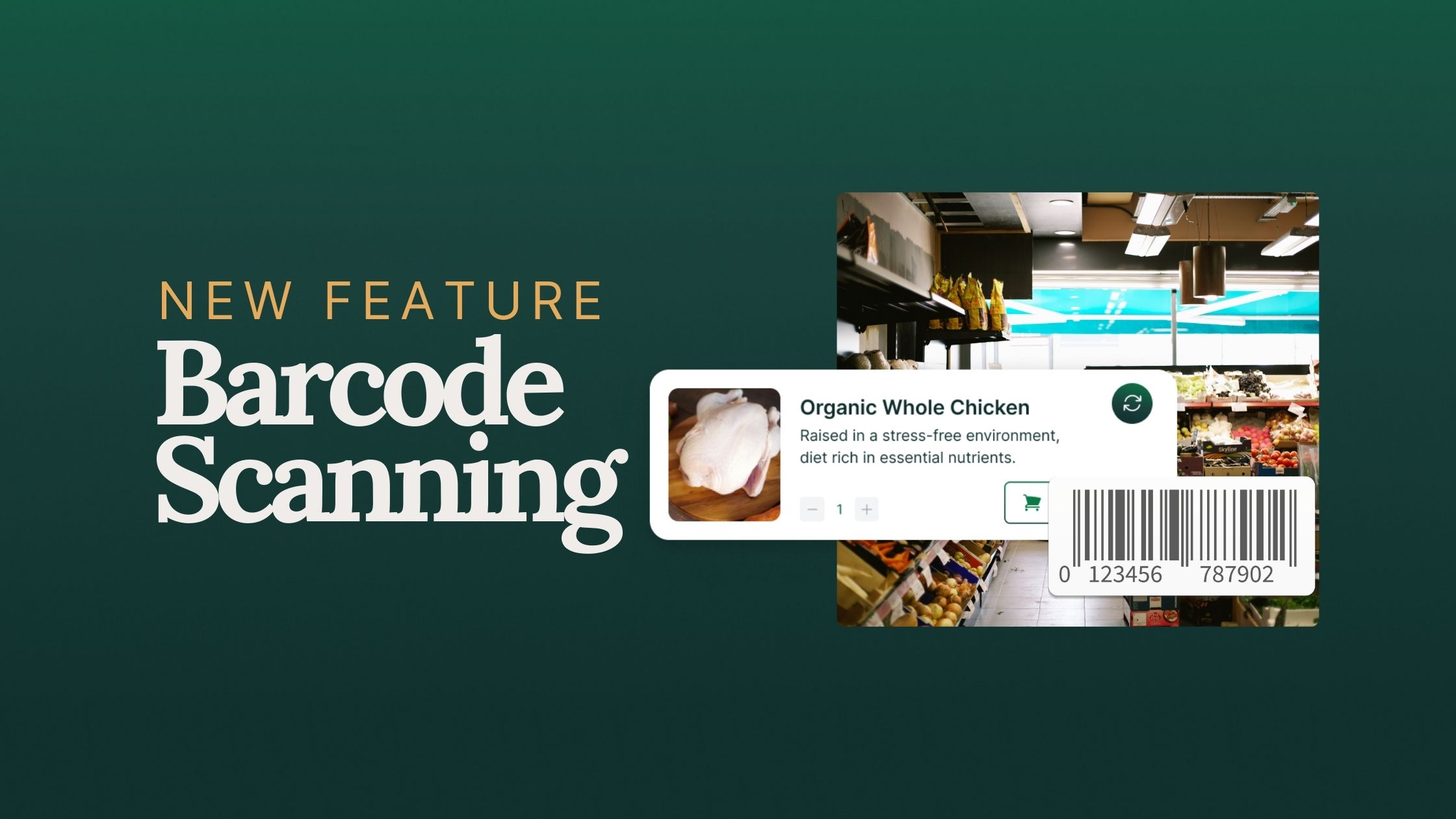Free Workshop | Farm Marketing Meets AI: Learn ChatGPT Workflows for Busy Farmers
.webp)
+1 (855) 699 1026

Nestled in the heart of Waimanalo, Hawaii, Ahiki Acres is a half-acre farm with an outsized impact. Co-owners Haley and Matthew McKinnon are not just growing over 100 crop varieties, they’re also helping other small farmers sell their produce, streamlining local food access for their community, and modernizing how their community shops for local food.
“We can’t grow enough to meet the demand,” says Haley. “So we began aggregating from other small farmers, especially those in the same incubator program we came from. Helping them helps us too–more diversity at our farmers market booth boosts our own sales.”
Ahiki Acres launched in 2019 after Haley and Matthew completed GoFarm Hawaii, a beginning farmer training program. Like many new farmers in Hawaii, they faced the challenge of land access: “In Waimanalo, one acre of ag land can cost a million dollars. At 29, I definitely can’t afford that,” Haley explains.

They eventually secured a 20-year lease on new land in 2022. However, they haven’t yet planted there due to the extensive work needed to clear the overgrown area and set up security systems after experiencing ag theft. “We realized we had to live on the land first, before we could farm it,” Haley says.
During this time of transition, the need for simplicity and efficiency in their sales systems became more critical than ever.
Ahiki Acres’ primary sales channel has always been their weekly farmers market, but Haley realized early on that selling in person wasn’t enough.
“We started offering pre-orders so customers could shop ahead and pick up at the market,” she says. “It’s great for people who want to sleep in and still get what they want, especially because we sell out quickly.”
They originally used Squarespace to manage orders, but it wasn’t built for food sales. “It worked, but it wasn’t perfect. It felt like it was made for general retail. I needed something made for farmers,” Haley says.
Haley signed up for a free trial after hearing about Local Line from the Market Gardener Institute. “That personal connection was really helpful,” she says. “As a small farm with only one employee, I’m doing everything myself. Having someone check in made me take a closer look, and once I did, I was excited. It felt like a platform that actually understood farm workflows.”

Haley now runs an efficient weekly order cycle using Local Line. On Wednesdays, she surveys her field and collects available inventory from other growers. By Thursday at noon, she updates her Local Line store and sends out a Mailchimp email and SMS to her customers announcing that the online market is open.
Customers place orders between Thursday and Saturday, choosing either farmers market pickup or a secondary pickup at a local café. “We added the café option for folks who have church or sports on Sunday mornings,” Haley says.
Packing orders used to be a manual slog, but Local Line’s pack labels changed everything. “Before, I was printing invoices on paper and stapling them to paper bags. Now I use a thermal printer that I already had and just print labels. It’s way cleaner. And I love that the labels include checkboxes so I can pack orders like I’m shopping in a little store.”
She stores produce in a 20-foot CoolBot trailer and uses the labeled bags to streamline packing. “It probably takes me about two hours to pack everything now. It’s become really smooth.”
For Haley, some of the most useful Local Line features are the ones that fit seamlessly into her weekly rhythms:
While she hasn’t yet had time to explore features like vendor seats for their aggregation and price lists for their restaurant customers, she’s excited about what’s possible. “I definitely want to get more organized with the vendors I aggregate from. Right now, it’s all text messages. Local Line has a vendor feature I’d love to try when we’re settled on the new farm.”
The first few months of using Local Line weren’t without stress. “For the first six months, I was really overwhelmed. I didn’t have time to troubleshoot.” Haley admits.
But after using the platform for a bit and finding new workflows, Haley is happy she made the switch. “The new features like pack labels and product variants have eased so much stress. It really feels like Local Line is listening and making updates for farmers like me.”
As a small-scale farmer, your time to dedicate to learning new platforms is limited. “A lot of us are really small, and the learning curve can feel steep. But if you’re willing to dive in and ask for help, it can really pay off.”
Haley’s advice for other farmers thinking about adding online orders? Be realistic about your time, and get help if you can.
“If you have the option, hire someone to manage your online store and customer communications. That would save me so much time and stress. But even if you’re doing it all yourself, tools like Local Line can make the hustle more manageable.”
Even through the challenges of transitioning land, aggregating from other farms, and wearing every hat in her business, Haley sees the online store as essential. “Pre-orders make our booth more efficient, help us plan ahead, and make it easier for our community to buy local. I don’t think I’ll ever go back.”
👉Are you a market garden looking for a new farm e-commerce platform? Book a meeting with our team and learn more about how we can help you grow your sales this year.


